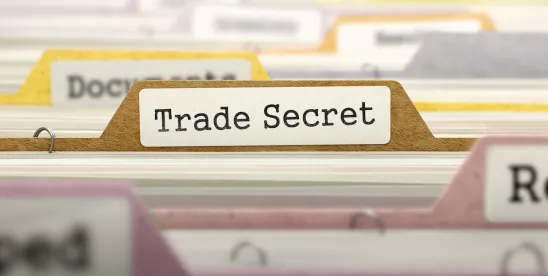AQuate II, LLC v. Jessica Tedrick Myers and Kituwah Global Gov’t Group, LLC, is, as all parties put it, about “an archetypical trade secrets claim,” but with a couple of twists: sovereign immunity and an agreement to resolve disputes in a forum that allegedly does not exist. See Aquate II LLC v. Myers, et al., No. 22-12669, 2024 WL 1901504 (11th Cir. May 1, 2024).
Appellant and Plaintiff AQuate II, LLC (“AQuate”) is a tribal LLC organized under the authority of the Alabama-Quassarte Tribal Town. AQuate was created to compete for and perform federal government contracts as a participant in the Small Business Administration’s § 8(a) Business Development Program, which was created to help qualifying small businesses compete for federal procurement contracts. Enrollment in the § 8(a) Program requires qualifying businesses to agree to “sue and be sued” in United States federal courts for “all matters relating to” the Small Business Association, including its § 8(a) Program and participation, loans, and contract performance relating to the same. See 13 C.F.R. § 124.109(c)(1).
Pursuant to the § 8(a) Program, in 2012, AQuate won the contract for providing armed security services to the U.S. Navy’s Sea-Based X-Band Radar-1 vessel (“SBX-1”) for a 5-year term. In 2017, the U.S. Navy sought proposals for the SBX-1 contract, and, with the help of its employee, defendant Jessica Tedrick Myers (“Myers”), AQuate again won the contract for a five-year term. In 2022, the U.S. Navy again sought proposals for the SBX-1 contract.
In 2017, the same year that AQuate won the SBX-1 contract, Myers left AQuate and allegedly took her knowledge of confidential AQuate information as well as “copies of AQuate’s contracts, proposals, personnel, and other information” (i.e., the alleged trade secrets) to a competitor. See AQuate II, LLC v. Myers, 616 F. Supp. 3d 1284, 1287 (N.D. Ala. 2022). Specifically, Myers is alleged to have gone to Kituwah Global Gov’t Group, LLC (“Kituwah”), another tribal LLC, and used AQuate’s trade secrets to help Kituwah craft a response for the U.S. Navy’s 2022 request for proposals for the SBX-1 contract. Myers is also alleged to have attempted to contact current AQuate personnel to seek applicants as well as further information.
AQuate sued Myers and Kituwah in the federal district court. Both Myers and Kituwah claimed they were not subject to suit in federal district court.
Kituwah invoked sovereign immunity and claimed it was not subject to suit in federal district court. AQuate argued that Kituwah had waived its sovereign immunity with respect to claims relating to Kituwah’s participation in the § 8(a) Program, including claims that it improperly used trade secrets to bid for a contract pursuant to the § 8(a) Program. The district court agreed with Kituwah, but the Eleventh Circuit reversed, agreeing with AQuate that its claims “are ‘related to’ Kituwah’s participation in the 8(a) Program,” and that Kituwah had waived its sovereign immunity with respect to claims “related to” its participation in the Program. The Eleventh Circuit, applying a plain language interpretation of “related to,” noted that “[i]t would defy common sense to hold otherwise.”
As to Myers, she claimed that her disputes with AQuate were governed by a forum-selection clause, whereby the parties had agreed to resolve their disputes in Alabama-Quassarte Tribal Town court. AQuate, however, claimed that the clause was unenforceable because the selected forum—the Alabama-Quassarte Tribal Town court—did not exist. The defendants, on the other hand, insisted the tribal court did exist, and submitted two orders allegedly from the tribal court. While the district court declined to weigh the “legitimacy” of the tribal court and found the forum selection clause enforceable, the Eleventh Circuit concluded that the evidence did not support a finding that the tribal court existed, reversed the district court’s decision, and remanded the issue for the district court to specifically make a finding on the enforceability of the forum selection clause given the Eleventh Circuit’s conclusion.
The Eleventh Circuit’s holding indicates that the alleged theft of trade secrets could “relate to” any purpose that those trade secrets are used for, and could, therefore, be used to hail parties into a court based on a forum waiver or selection clause in an agreement that facially does not appear to involve trade secrets at all (i.e., here, the waiver of sovereign immunity to participate in the § 8(a) Program).




 />i
/>i
